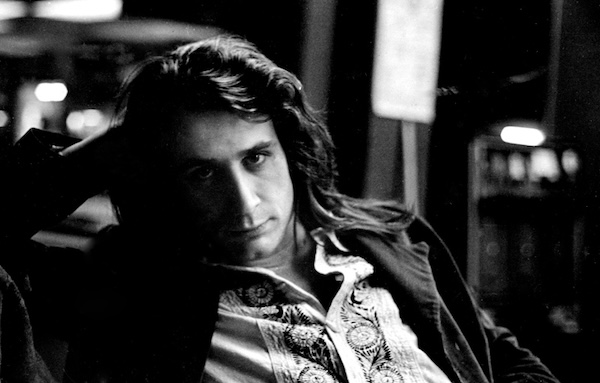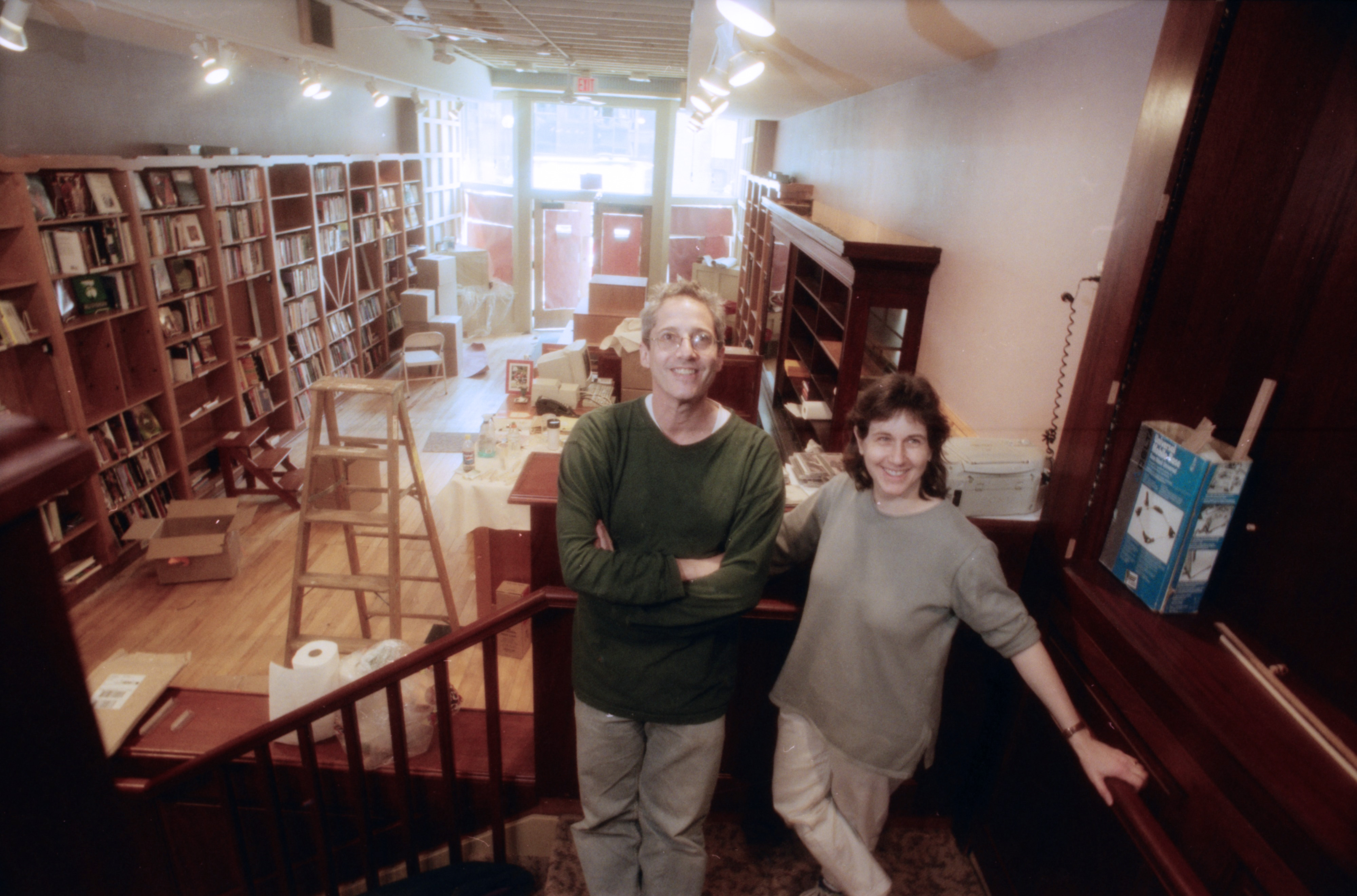
AADL Talks To: Grace Shackman

Grace Shackman is an author, educator, and former Washtenaw County Commissioner. But she's probably best known as a local historian and a long-time contributor to the Ann Arbor Observer, where she has dug into many fascinating topics of local and regional history. Grace tells us about how she became involved in politics, her research process, and how her interests spurred her beyond her shy nature.
Find more by and about Grace Shackman in our archival collections.

AADL Talks To: Paul Kahlenberg & Zac Johnson

In this episode, Paul Kahlenberg and Zac Johnson talk about managing Tower Records in Ann Arbor. They reminisce about the store's tight-knit staff, visits from bands both globally and locally famous, and selling concert tickets before the internet.
Find more about Tower Records in our archival collections.

AADL Talks To: Peter Andrews

In this wide-ranging interview from 2010, Peter Andrews recalls his varied career producing and managing local and regional music talent — from managing the Scot Richard Case (SRC) band and bringing bands like The Who, Jimi Hendrix, and the Yardbirds to Ann Arbor’s Fifth Dimension club, to booking national acts for University of Michigan student groups. He also discusses his role in Ann Arbor’s legendary Blues and Jazz Festivals, producing the John Sinclair Freedom Rally at Crisler Arena in 1971, and bringing John Lennon and Yoko Ono to town.

AADL Talks To: Dave and Linda Siglin

In this episode, Dave and Linda Siglin talk about the history of Ann Arbor's beloved folk venue, The Ark, from its humble origins in a house on Hill Street to its thriving location at 316 S. Main Street. Dave and Linda reminisce about some of the famous national and regional talent that has played the venue; the evolution of the business; changes within the folk music industry; and the Ark's signature fundraising event, the Ann Arbor Folk Festival.
Read historical articles about The Ark and the Siglins and the Ann Arbor Folk Festival.

AADL Talks To: The Chenille Sisters
In this episode, AADL Talks To The Chenille Sisters, Ann Arbor's favorite harmonizing trio. They are (left to right, below) Cheryl Dawdy, Grace Morand, and Connie Huber. The Chenille Sisters began singing together at Ann Arbor's Old Town Tavern in 1985. Within a year, they made their first of several appearances on Garrison Keillor’s popular “A Prairie Home Companion” radio program. The trio wrote and toured constantly through the early 2000s, appeared in numerous regional and national venues, and recorded 12 records.
Visit our Chenille Sisters topic portal for more information, documents, and photos covering their history.

AADL Talks To: Bill Zirinsky and Ruth Schekter of Crazy Wisdom
In this episode of AADL Talks To, we interview Bill Zirinsky and Ruth Schekter. Bill and Ruth discuss their history running the Crazy Wisdom Bookstore and the Crazy Wisdom Journal. They also talk about their time in Ann Arbor, including some of the city’s changes over the years. They discuss their experience as a unique “new age” bookstore in a town known for its book shops.

JCC Conversations | Mark Braun
Learn about Mark’s adventures including putting the bike with the piano on a boat and towing it with the help of volunteer swimmers from St. Ignace to Mackinac Island.
Mr. B is a blues and boogie-woogie pianist who has become one of the premiere purveyors of a vanishing art. Having learned his craft first-hand from the early masters, he is a rare living link to the first generation of blues and boogie pianists.
Steeped in the rich legacy of this tremendously exciting music, Mr. B learned directly from blues and boogie legends like Little Brother Montgomery, Boogie Woogie Red, and Blind John Davis.
JCC Conversations | Kevin Lieberman
Chuck Newman interviews Michigan Robotics PhD Candidate Kevin Lieberman. You may have enjoyed listening to Kevin playing a selection of Jewish music emanating from the Baird Carillon at Burton Memorial Tower. They discuss his studies in human-robot interaction in aerospace, defense, and other complex environments. He will also inquire about the international presentation on RoboEthics and Rabbis: Being Jewish During the Robot Apocalypse.
Friends of the Sixties: John Sinclair and the Blues Scholars
"Friends of the Sixties" and host Michael Erlewine present poet and blues scholar John Sinclair backed up by the Blue Scholars doing the words from an interview of Howlin' Wolf by Michael Erlewine at the first Ann Arbor Blues Festival in 1969. The Blues Scholars include Michael Erlewine on harmonica, Seth Bernard on guitar, Luke Winslow-King on bass, with vocals by May and Anne Erlewine. Originally recorded in 2007 at the Heart Center Studios. (c) Copyright 2013 by Michael Erlewine.
This video originally appeared here.
The Prime Movers Blues Band (Feat. Iggy Pop): Instrumental
The legendary Prime Movers Blues Band recorded no albums. The band formed in the summer of 1965 at the same time the Grateful Dead began. Known mostly throughout the Midwest, the band did play in San Francisco during the 'Summer of Love' in 1967, opening for "Cream" at the Fillmore Auditorium, playing at The Matrix, The Straight Theater, the Avalon Ballroom, and many other venues. Recently a reel-to-reel tape was found. It is one summer night's bar gig, one complete set probably in 1966 or 1967. This is one cut from that set, although a full album of the Prime Movers Blues Band will be available soon, with James Osterberg (Iggy Pop) singing the Muddy Water's song "I'm a Man."
The Prime Movers Blues Band was founded in the summer of 1965 in Ann Arbor, Michigan.
The main band members included: